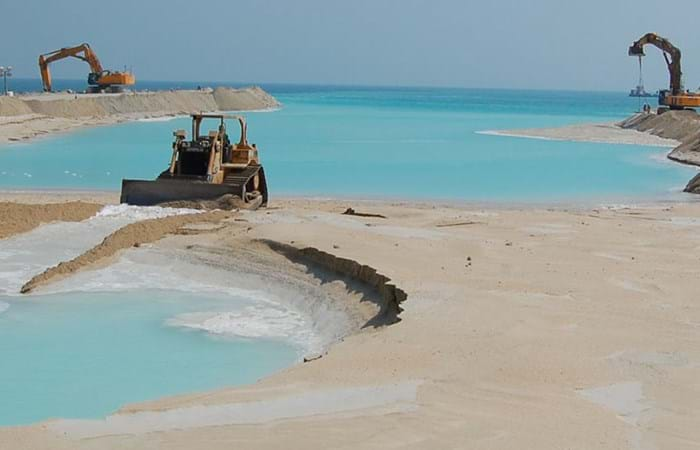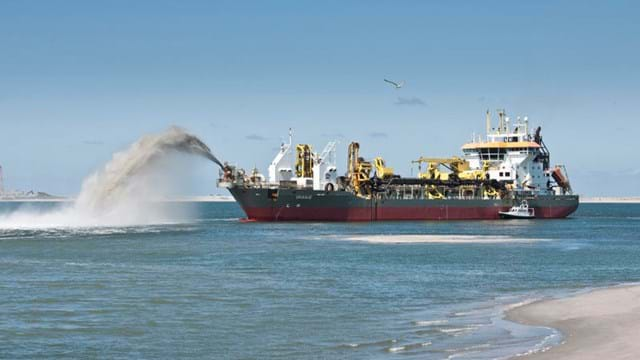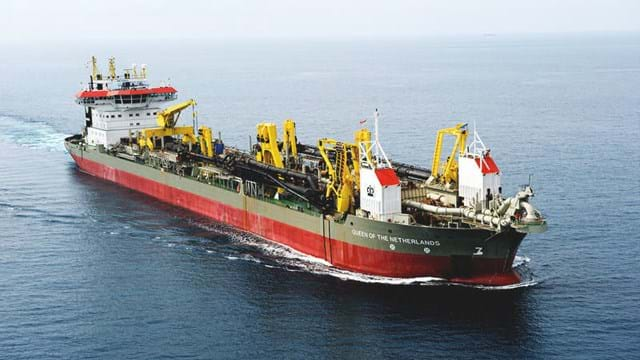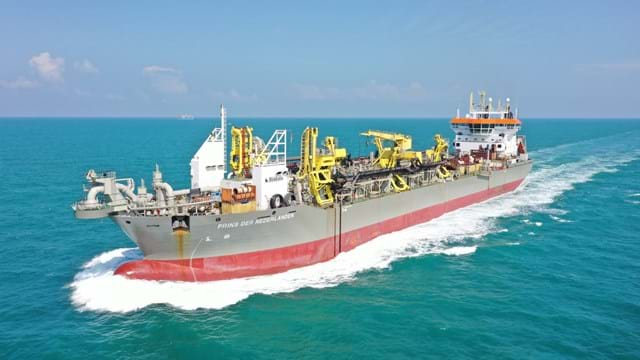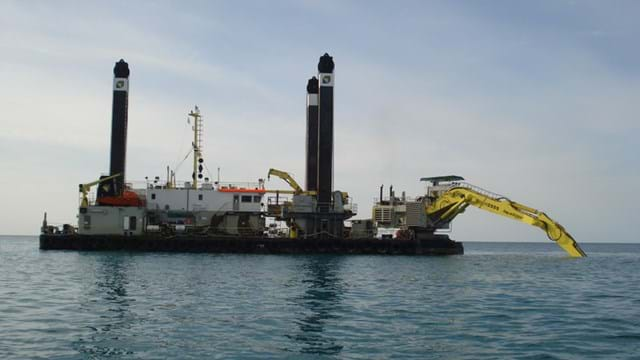The Ras Laffan project is one of the largest maritime engineering projects in the world. Its sheer size can best be viewed from space. Over a period of three years, more than 3,000 specialists have been working together to create the largest LNG harbor in the world. The total contract value is approximately USD 2 billion, with the Boskalis share amounting to 50%. Qatar has natural gas reserves of roughly 25 trillion m<sup>3</sup>, 15% of the world total. The gas is transported from the Offshore North Field (26,000 billion m<sup>3</sup>), 80 kilometers north of Qatar, into Ras Laffan, where it is liquefied and pumped into latest generation tankers.
This expansion made it necessary to review the infrastructure of both the petro-chemical installations and the facilities for transportation of the products. The new facilities were to be positioned in a sheltered area. The size of the existing harbor had to be increased from 106 km2 to 246 km2. Upon completion, the harbor has 10 loading facilities.To facilitate LNG berths and many other related activities (cargo, gas-2- liquid products etc.) the following additional works had to be constructed:
- Facilities for LNG tankers;
- Liquid-product berthing facilities;
- Cargo on- & offloading facilities;
- Vessel repair / dry-dock facilities.
As part of this immense expansion the existing port had to be extended from 8 km2 to 51.2 km2. This project was awarded to Boskalis - Jan de Nul JV.
Project specification
The main activities under the contract were:
- 24 million m3 dredging of waterways (widening of the existing waterways and additional shelters)
- 29 million m3 reclamation (areas for tank storage, container handling and future dry docks)
- The construction of 33 kilometers of breakwaters, for which the following materials were required:
31 million tons of local rock material, 9 million tons of rock from overseas, transported over a distance of 275 n. M., 2.5 million m3 of concrete and 250,000 concrete elements for protection of the structures against wave conditions (Antifers & Accropodes of 3, 4 and 5 m3 each).
